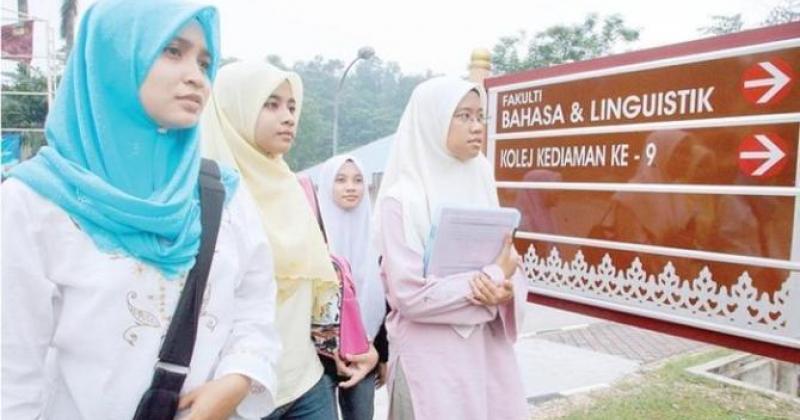A public university is organising seminars that put Muslim students on guard against alleged proselytism. Educators point out that “encouraging hatred opens the door to ISIS”.
Beware of Christians who want to convert you. This is the message sent out to Muslim students in the seminars organised by the Universiti Teknologi Mara (UITM) in Kuala Lumpur, cautioning them against attempts at “proselytism and Christianisation”. In a multi-ethnic and multireligious (albeit 60% Muslim, with the remaining 40% split between Buddhism, Christianity and Hinduism) nation like Malaysia, the initiative introduced by a public university in collaboration with the police, caused alarm and sparked protests.
The Christian Federation of Malaysia denounced it as “an attempt to spread propaganda and spur sectarian violence”. Muslim scholars disapproved of the fact that a university that teaches Engineering, Medicine and Law, should pursue a project (the last meeting took place just a few weeks ago) that instills feelings of hatred and intolerance towards Christians among Muslim students. Christians constitute a substantial and peaceful minority in the country (around 9%, half of them Catholics), who have inherited the legacy of the Jesuit Francesco Saverio. He preached in the Malacca peninsula, in the mid-16th century.
The news about the seminar only came to light because of all the talk on social media (a student posted a photo on Facebook and a Christian priest saw the post). It reignited a debate that never really died in a country in which discussions over institutional ambiguities that remain unresolved, continue. Although the Constitution of the Republican Federation (created in 1963) guarantees religious freedom, Islam is still the “official religion” as well as being the compulsory faith for all citizens of Malay ethnicity, so those wishing to abandon Islam need to obtain permission from a special Sharia court, which rarely grants it.
“We know Islamophobia exists. Why fuel Christianophobia? We need to teach values such as harmony, peaceful co-existence, tolerance and mutual respect. Why manipulate the minds of young people who have not yet been reeled in by ISIS?” notes Azly Rahman, a Muslim educator, criticising the university’s initiative.
State institutions are moving down a slippery slope: according to figures cited by Malaysian Insider, around 200 young Malaysians are believed to have joined ISIS in Syria and Iraq. Since 2013, the police has arrested at least 120 individuals who tried to join the Caliphate or returned home after a period of training in the Middle East. According to the Minister of Transport Liow Tiong, ISIS apparently has 50,000 supporters on in Malaysia. This worrying trend has led the government in Kuala Lumpur to put together a “White Paper on terrorism” aimed at containing the influence of the Islamic State. It also hastened to introduce a new anti-terrorism law allowing for individuals to be arrested without a trial and stricter Internet censorship.
Prime Minister Najib Razak recognises that playing with the forces of radical Islam can have ill-fated consequences and as he recalled in his New Year speech, “unity is vital for Malaysia”, encouraging social and religious harmony. However, Christians note, the government is not doing enough to stop groups that undermine this harmony.
A new group that calls itself “Christians for peace and harmony Malaysia”, is actively working with the government too, to foster peaceful co-existence. The group aims to work to encourage dialogue, build a reconciled and peaceful society, even seeking a relationship with the most radical Islamic groups like Perkasa, which accuses Christians of trying to proselytise Muslims.
It will help heal wounds like the one which intensified at the start of last year and is now scarring over following a seven-year controversy: a year ago, the Supreme Court rejected the appeal made by the Catholic Church, regarding the Catholic weekly Herald’s use of the name “Allah” as a term to describe “God”. The court of first instance ruled in favour of the Church but the High Court issued a sentence in favour of the Malaysian government, forbidding the Herald to use the word “Allah” in the “bahasha malaysia” language edition, the one in which faithful use the term “Allah”.
Although this sentence was seen as unjust, the Archbishop of Kuala Lumpur, Julian Leow, urged Christians in Malaysia to “remain united in their efforts to foster dialogue and harmony between ethnicities and faiths. We are hopeful that understanding and mutual respect will always form the basis of social and religious co-existence in Malaysia”.
